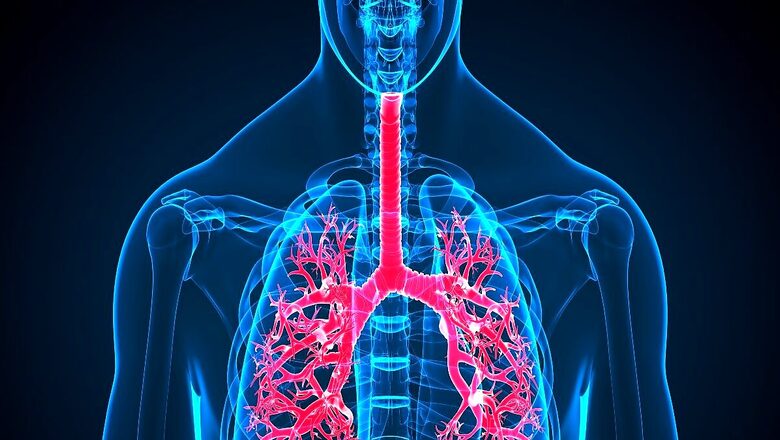
views
One day last year, I felt a crushing fatigue, nothing like I had ever felt before. Like a bolt from the blue. Even standing up was proving to be difficult. As someone who was in good physical health, exercising one hour daily, dancing regularly and just back from an important work trip, I could not have imagined even in my wildest nightmares that what I felt was the beginning of something so sinister.
The journey that followed involved a worsening of symptoms (mostly fatigue, nausea, vomiting and a lack of appetite), a battery of tests and scans and various hypotheses from multiple doctors as to what the diagnosis could be. When the diagnosis finally arrived, it was one which was totally unexpected and for most completely unheard of.
I had been diagnosed with a rare form of lung cancer called ALK (Anaplastic Lymphoma Kinase) positive. Incidentally, June is ALK-positive cancer awareness month. This cancer mostly occurs in the lungs but can also originate in other body parts such as the breast and the brain. Simply put, ALK is a gene in your DNA and if part of it is mutated, it can result in uncontrolled cell growth i.e. cancer. The mutation in the gene is, however, not known to be inherited.
There are many surprising facts about this type of cancer. For instance, it occurs overwhelmingly in younger adults — people in their 30s and 40s — compared to others with lung cancer who are typically diagnosed around 70 years of age. It also strikes young women disproportionately. The most startling fact though and one that is completely contrary to popular belief is that this cancer affects non-smokers like myself. It is perhaps for these reasons that even doctors found it challenging to understand my diagnosis and this also goes to show the importance of being as self-aware and educated as possible about this disease.
ALK-positive lung cancer causes about 72,000 new cases of lung cancer each year, worldwide and 64,000 deaths every year, globally. Unfortunately, at the time of diagnosis, around 90 percent of those with this form of cancer have a disease that has spread to body parts beyond the lungs (metastatic or stage 4 cancer). ALK-positive cancer is currently incurable but there are medications (oral tablets) which can extend a patient’s life. I, too, live on such medicines every day. They have their share of side effects which need to be managed, some medically, others through sheer mental strength and willpower.
Being a very deceptive cancer, ALK often mutates further and becomes resistant to the tablets. This creates challenges for long-term survival but with research, there is hope that better medicines will keep becoming available and lifespan will be prolonged.
What can you do to protect yourself from this cancer?
Well, given that its risk factors are not clearly understood and that it often has an unusual presentation, there might not be a lot that you can do to prevent it. But you can certainly be aware of any signs or symptoms. These might be related to the lungs such as coughing up blood, shortness of breath, a cough that does not go away, chest pain and hoarseness.
Alternatively, they might be non-specific or even related to other parts of the body (depending on where the cancer might have spread) such as fatigue, appetite loss, weight loss and nausea. It is imperative that you take action as soon as you notice anything unusual at all about your body. This of course holds true for any type of cancer, not just ALK.
It is not all about the body though. A lot of the fight against cancer is in one’s mind. It takes an immense amount of resilience and courage to live with an aggressive disease like the one I am afflicted with. I would not be able to undertake this journey without professional psychological support. Soon after I was diagnosed with ALK-positive cancer, I started on anti-depressants. I do believe that the medication has helped me cope with the harshness of my new normal.
Why am I sharing this? Because I believe that there continues to exist stigma around taking medications for mental health-related issues, even when it comes to living with an awful disease like cancer. Cancer survivors should not have to carry this additional burden of social stigma. Being supportive and empathetic is and should be the only way forward.
The author is Director, NITI Aayog. Views expressed are personal.




















Comments
0 comment